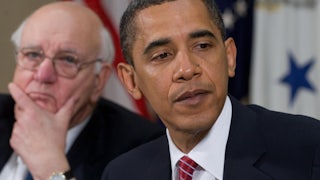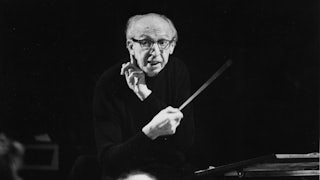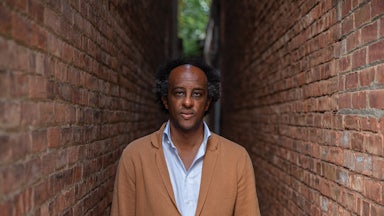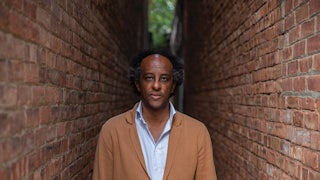In her 2011 article “THE EROSION OF THE PUBLIC GOOD: THE IMPLICATIONS OF NEO-LIBERALISM FOR EDUCATION FOR DEMOCRACY,” Catherine Broom, professor of education at the University of British Columbia, Kelowna, depicts a “small but lovely” park near her home, frequented by “individuals of all ages, who collectively enjoy it as a public space and a right of citizens in a democracy.” The loveliness of the park, however, is marred by a group of teenagers who often visit and leave behind various discarded items such as broken alcohol bottles, cigarette butts, and junk food containers. “These teens clearly value this public space as a right, but they lack awareness of the responsibility that is embedded within this right,” Broom explains. She describes a kindly old man “with a smile on his face and a greeting to all” who regularly cleans up the teenagers’ mess and argues that the attitude of the irresponsible teenagers parallels the ideology of neoliberalism, which classifies all goods as private goods. She laments that this ideology has spread from the business world into the realm of public education, to the latter’s extreme detriment.
In an essay titled “Dewey’s Liberalism and Ours,” the political philosophy scholar Michael J. Sandel excavates a divergent form of liberalism developed early in the twentieth century, during the Progressive Era. Classical liberalism, as well as its leftist, modernized version, egalitarian liberalism, were concerned principally with individual rights—in the first case, with individual rights against the state, in the second, with an individual’s right to a decent life in the context of modern industrial civilization. John Dewey’s principal concern was not with rights, however, Sandel explains. His principal focus was on the creation of a democratic process within which individual character and creativity could flourish. Dewey’s philosophy was one of communitarian liberalism (in Sandel’s seemingly paradoxical phraseology), and at its core was the institution of the public school and the process of education for citizenship and democracy.
In Catherine Broom’s interpretation of Dewey’s pronouncements on education, the overriding purpose of schooling was to inculcate in students the desire and the ability to seek the common good for society as a whole. “The public good,” she writes in the abstract of her article, “is understood as an imagined and communal space in which goods valued by society become collectively owned and shared through respectful and open contestation and negotiation. The argument is then made that schools are both part of the public good as well as involved in the development of this concept in students, but that the ability of schools to do this is being damaged by new discourses…. neo-liberal ideology is eroding this democratic idea.”
Neoliberal educational policies, she says, are aimed at cutting costs and rationalizing and controlling educational processes through the use of business-based performance measures such as standardized testing, and “teaching is narrowed to individualistic and competitive market ideology, and encased in the value of consumption and competition.” She also asserts that “the language of community is often exorcised.”
However, as Jason Blakely brings out in his 2017 article in The Atlantic, “HOW SCHOOL CHOICE TURNS EDUCATION INTO A COMMODITY,” neoliberalism’s aspirations go way beyond merely propounding a competitive market ideology in the classroom. The proponents of neoliberalism, Blakely explains, have sought to turn school systems themselves into competitive marketplaces, following the neoliberal principle that when public institutions don’t resemble markets by offering a range of consumer choices, the consumer is not really a member of a free society. In education, the neoliberal goal has been to privatize public schools to the extent possible, or, alternatively, to create forms of consumer choice, such as vouchers, that will constrain the public schools. Blakely points out that the battle over school choice is only the latest episode in a decades-long global contest between two models of freedom, the first based on the principles of democracy, the other on a market-directed ideology. The latter is often unpopular with the public, requiring force to carry out its mandates, as was the case in Pinochet’s Chile. “Authoritarianism and market freedoms can and often do go together,” Blakely argues.
Blakely also notes the obvious—that in all market systems, there will be winners and losers. He itemizes the disastrous consequences of Betsy DeVos’s successful promotion of school choice in Detroit before she became Donald Trump’s secretary of education: the defunding and closing of numerous public schools; the diversion of taxpayer money into for-profit charter ventures; economically disadvantaged parents confronting worse options than they had before the neoliberal experiment began; and, to cap it off, no measurable improvement in student performance in the city. Some parts of Detroit, he writes, are now “educational deserts” from which children have to travel outlandish distances to find an accessible school. “Markets are by their nature non-egalitarian,” Blakely concludes. “For this reason, neoliberalism has been one of the biggest factors contributing to the growing inequalities and diminishment of the middle and lower classes.”
Meanwhile, back in Kelowna, Catherine Broom worries that the public good is a “fragile, living concept,” and that “we may find it eroded if we do not attend to it.” She writes: “I return now to the park near my house. What will happen when the kindly old man does not come to pick up the teenagers’ waste? Will the park lose its attraction as a public space? Will the city close it due to the cost of cleaning it up? Or will they encase it in fences and charge entrance fees? In either one of these scenarios, all individuals in society will have lost.” The common good, it would seem, is difficult to create, and even more difficult to recapture once it is gone.






